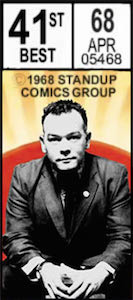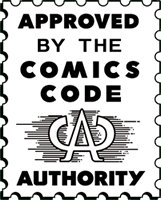Stew's Writing Written For Money
Patti Smith
The assumed rivalry between Blondie’s vocalist, Debbie Harry, and the poet and singer Patti Smith is one of the most persistent subplots in histories of the 1970s New York punk movement. Apparently, downtown wasn’t big enough for the both of them. But despite their shared pedigree, Harry has become an icon and Muppet Show guest, while Smith is a critically acclaimed cult concern. In fact, comparisons between the two are irrelevant. If Patti Smith is Modigliani’s Nu couche de dos, then Debbie Harry is that Athena poster of the tennis player scratching her bottom.
Patti Smith may have floated outside your peripheral vision recently, but this month sees the release of the double CD Land (1975-2002), the perfect career retrospective and ideal Patti primer, along with a new single, a cover of the Prince song When Doves Cry. Smith herself has a characteristically philosophical and democratic attitude to Land. “I was contractually obliged to make a greatest hits album,which, seeing as I only ever had one hit in America (1978’s Because the Night), I found pretty funny,” she deadpans at the beginning of our allotted half-hour interview. “It didn’t seem honest. So we made it the people’s choice. I asked friends and people in the street, and we polled people. We got 10,000 votes.” Typically of Smith, even a contractual obligation is made to feel like it somehow belongs to her public.
Born in 1946, Smith moved to New York in 1967, escaping a working-class childhood spent in Philadelphia, where scarlet fever gave her visionary hallucinations and a Little Richard record first suggested the existence of an exciting world beyond her Jehovah’s Witness upbringing. Her mother called the rough-and-tumble tomboy “her little goat girl”, and at the age of 12, distraught after being told to put her shirt on and stop wrestling with the boys, she wandered out onto a highway, where her dog was run over.
The teenage Smith got a job in a baby-buggy factory, where she read the French symbolist poet Rimbaud in breaks, and was bullied by co-workers who assumed her growing literary enthusiasms meant she was a communist. At a Rolling Stones show at the University of Pennsylvania she avoided being pulled under the crush of bodies by holding on to Brian Jones’s ankle. The image of rock’n’roll as a literal life-saver is too obvious to indulge.
Despite her early interest in writing and painting, Smith’s biographer, Victor Bockris, quotes her saying that she moved to New York “not to be an artist but an artist’s mistress”. In her early days in the city, she was linked to the future folk devil of the American right, the photographer Robert Mapplethorpe, and the playwright Sam Shepard, with whom she co-wrote the play Cowboy Mouth. A photograph, by Gerard Malanga, of the pair standing outside Kensington Church in 1972, after Smith’s first London reading, sees Smith obviously enraptured, while Shepard is a little stiff, perhaps thinking of his wife at home.
But soon she found success in her own right. After the publication later that year of her first book of poems, Seventh Heaven, Smith began doing readings, while Richard Sohl and Lenny Kaye improvised on piano and guitar behind her. She called her performance style – declaiming through a megaphone and toying with props and personas – Rock’n’Rimbaud, and, as the nascent New York punk scene swelled into being, it became clear how she should unite her interests.
Thus the Patti Smith Group came into being – music with poetry. Mapplethorpe allegedly funded the recording of Smith’s first single, Piss Factory, in 1974, on which she extemporised about her baby-buggy assembly-line days. Today, it would set you back Pounds 20 on 7in, but is included on CD for the first time on Land, marking the southernmost point of a continued and vital career that includes eight albums and a dozen books of verse.
Land gathers tracks even-handedly from Smith’s career. Examples of her recent work come from the three albums she has recorded since 1996, after an eight-year gap. But to call this a comeback seems inappropriate, as the work appears to be part of a continuum. “Comeback was not my word,” Smith explains. “I never told anyone I was leaving. All through the 1980s, I was working at art and poetry and music. I never went anywhere. But Land isn’t an attempt to reclaim the past. I’m not nostalgic. I may not be prolific, but I’ve always attempted to produce work honestly whenever I had something to say. I have different strengths now, but I’m proud of what I’ve done. I’m in a different place now, but I’m still angry, passionate and wilful.”
After the deaths of her husband, the guitarist Fred “Sonic” Smith, in 1988, closely followed by Mapplethorpe – these months of loss following a decade spent away from music as a wife and mother – Smith’s friend, the poet Allen Ginsberg, wondered how this “angry, passionate and wilful” performer might recast herself in the light of experience. “How will she deal with suffering?” he asked. “How will she transcend suffering and become a lady of energy, singing of egolessness? Because so far, her propulsion has been the triumph of the stubborn, individualistic, Rimbaud-Whitman ego.”
But Smith’s recent works have supplanted self-righteous fury with the righteous kind, bemoaning political, ethical and ecological collapse, and she has changed, too. “Since I had children, I’ve become less concerned with my ego and more with how to empathise with others,” she replies to the suggestion that her once scatter-gun anger has become more focused. “I’m concerned about our children and the world situation and the environment and the way we treat each other. I was a wife and mother in the 1980s, and I worked hard when my resources were low. I saw how parents struggle. I learnt how hard people worked.”
Patti Smith is prepared to grow and embrace change, and she is not constrained by a youthful image of herself that makes growing older ridiculous. Even the sleeve of her first album, 1975’s Horses, featured a Mapplethorpe portrait that, while defiantly sexual and arresting, challenged contemporary ideas of how a famous female should be portrayed and left her record-company boss supposedly pleading to be allowed to airbrush out hints of her moustache. And unlike the British punk contingent, the New York crowd, and Smith most notably, did not adopt a slash-and-burn policy to their rock’n’roll predecessors and were, instead, enamoured of them. To see Smith’s incendiary live shows today is to witness the kind of charged performance that Mick Jagger might have given had he not become such an absurd figure.
Even in her first flowering, Smith wanted to maintain what she saw as some essential purity of the rock’n’roll essence. “What separated us from other bands of the period was that I didn’t want to be a rock’n’roll star. I wanted to break certain barriers down, but I had no special gifts. I wasn’t a good singer and I hadn’t performed much, but I loved rock’n’roll and I wanted to infuse it with revolution and poetry and politics. I wanted to remind people that rock’n’roll belonged to us, that it was street art at a grass-roots level and it was slipping out of our hands. I wanted to remind people that they, too, could get up and do it, that rock’n’roll need not be some glamorous, stadium thing.”
On stage and in conversation, Smith exudes a genuine passion, and this is perhaps the only aspect of her as a performer that makes her seem dated. What you see would appear to be what you get. She is not imprisoned by the multiple layers of irony that sometimes smother performers she has supposedly inspired, such as Bono of U2 or Michael Stipe of REM. “I’m not an ironic person,” she says. “I’m not always articulate, and sometimes I’m just crap, but I’m never ironic.” The best-received between-song moment at Smith’s last London show, apart from a spontaneous burst of applause when she recommended Peter Ackroyd’s William Blake biography, was when she spoke bluntly of her disappointment with George W Bush’s refusal to sign the Kyoto Agreement. But since September 11, Smith feels it has been harder for honest performers to dare to express doubt.
“After September 11, people forgot who they were on September 10. On September 10, people were concerned about the environment, the escalation of war, and healthcare. Now they are driven by fear. Our government has produced an atmosphere of fear. I’m a total patriot, but I’m not a nationalist. Patriotism means something else. I’ve read the Declaration of Independence more times than George Bush and I understand what it means. Civil rights are narrowing, and people are afraid to say things that aren’t uncontroversial. I know September 11 was terrible. I live a short walk from the towers. The dust is still making me ill. The planes flew over my daughter’s school. They were horrible deeds, but there are other ways to move forward.” So, where does Smith feel she fits into our once rebellious rock’n’roll scene’s current culture of compliance? “Me? I feel like I’m back where I was in the 1970s, when I was looked upon as dangerous. But I’m not dangerous. I’m not a politician. I’m barely intelligent. I’m just a common citizen.”
Suddenly, there’s a record company public-relations woman telling me my time with the barely intelligent common citizen is up. Smith intercedes on my behalf, saying she will end the interview when she wants, and we have a few extra minutes. Cynically, I wonder for a moment if this display of independence is for my benefit, as if even the PR machine must bow before the might of Patti Smith, but you sense it’s a long time since she took pleasure in status games. These days, Smith isn’t afraid to make a fool of herself, and can even see a positive side to her most public failures.
“Some nights on stage, when I make mistakes, I feel like a self-conscious 13-year-old,” she says. “Like when I lose my place in a song and I just can’t find it again. I feel embarrassed and I tell the audience: “Next time you make an ass out of yourself, remember this moment. You’re all down there looking up at me, but I’ll be fine.'”
Land (1975-2002) is released on April 15 on Arista

